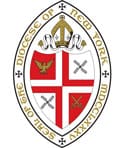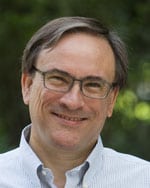Communications Contacts
Mr. Nicholas Richardson
Director of Communications, Editor, Episcopal New Yorker
Office: 212-316-7520
Fax: 212-932-7323
nrichardson@dioceseny.org
Mr. Andrew Gary
Assistant to the Chief of Finance and Operations, Communications & Editorial Assistant
Office: 212-932-7322
Fax: 212-932-7323
agary@dioceseny.org
Bishop Dietsche Writes on the Tree of Life Massacre and the Responsibility of Gospel Witness
October 29,2018
My Dear Brothers and Sisters,
All good and well-meaning people in America and across the world are horrified and heartbroken over the mass shooting that took place at Tree of Life Synagogue in Pittsburgh this weekend. This may have been the largest assault on American Jews in our history, and has happened at a time when there remain many among us, including some of the victims of Saturday’s massacre, who lived through and can remember the Holocaust in Europe of the 1930s and 1940s. Vicious, violent anti-Semitism has been a continuous dark current through western culture century after century; it has erupted in some of the most horrific chapters of our history, and some of the most extreme campaigns of human brutality; and, on Saturday we were reminded in the most painful way that this sheer evil continues to reside in the deep pathology of American religious, racial and ethnic hatreds.
Every community of faith, and the larger society around us, are recoiling at this violent crime of religious hatred in our midst. Everywhere are prayers for the dead and wounded, for the bereaved, and for a shattered community. The people of Tree of Life, and of Squirrel Hill in Pittsburgh, will know, I am certain, the compassion and love of the much larger body of people who feel the deep wound of this violence alongside our Jewish brothers and sisters in Pittsburgh. To all of them this diocese extends our love and grief and the embrace of our common humanity. And the rich fabric of constant prayer.
But this terrible act came at the end of a week when we saw some fourteen or more bombs sent through the mail to political leaders and the news media. That those bombs brought no loss of life is a grace, but the fact of them, sent by an extreme far-right politically motivated attacker, has shaken the foundation of a country preparing right now to exercise the sacrament of its democracy.
Something essential and needed in our common life is coming undone. Some foundation upon which we believed we stood is crumbling. Some thread, by which we were bound together, has been cut, and we are falling away from one another into warring camps and tribal divisions. I have had vestry persons in our parishes tell me that their congregations are so divided that “we can’t even talk to each other anymore.” At church! Everywhere is the fear that those treasured democratic values and bonds of community by which we have ordered our common life across our differences, by which we have endured and survived crisis upon crisis throughout our history, may now be spinning away from us. Who are we actually? And what may we become?
In the face of such a societal crisis, and in this vacuum of political leadership, it is more important than ever that we, the church, be the church. That we choose the gospel witness. We must make now, as ever, no peace with evil, and continue our conviction in the love of God for all people through our Lord Jesus Christ, and for the generosity and freedom and equality and compassion and welcome that this love of God requires of us. These principles must inform everything we do as a church: when we are being pastors and caregivers to one another; when we pray for those who do not pray for us; when we pray for the victims of hate; when we are reaching out to the least, the last and the lost among us; when we are learning in interfaith commonality the thousand faces of God; when we stand as one in advocacy for racial and ethnic and gender and LGBT equality; when we come before the altar to receive the absolving, reconciling love of God in Christ and then turn to this broken world to make our peace. And, too, when we look across the political and cultural divide and extend ourselves for the possibility of something new. To invite, beckon and call those whom we might otherwise name adversary or opponent or enemy into the enfolding love of communion. That we may make every sacrifice for the sake of the Kingdom. So that we may be repairers of the breach. This is what our Presiding Bishop meant in his royal wedding sermon: “love is power.” The power to transform. That simple proclamation, which galvanized the world, is our hope for the world; that the love of God, and the powerful expression of it in your life and mine, may make all things new.
With every good wish, I remain
Yours,

The Rt. Rev. Andrew ML Dietsche
Bishop of New York



